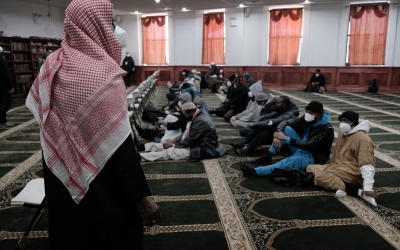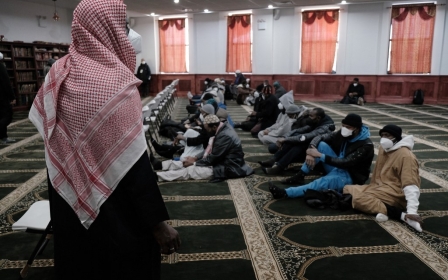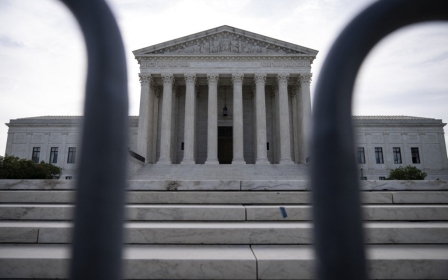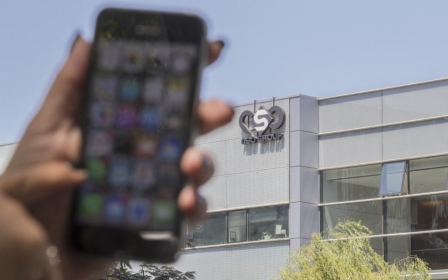More than half of 'suspicious activity reports' targeted Arabs and Muslims in Chicago

The Arab community is demanding an end to racial profiling after it was revealed that over 50 percent of "suspects" reported to the police, primarily for doing mundane things like texting or taking photos, were described as people of Arab descent in Chicago.
A few years ago, members of the Arab American Action Network (AAAN) started talking with members of the Chicago community about their experiences with law enforcement in the suburbs and in the city of Chicago. They began to collect stories and found that everyone had one to share: people would tell Muhammad Sankari, the lead organizer at AAAN, that their mother had been harassed. Or that their father's store was visited by law enforcement. And the stories went on.
So, AAAN obtained 235 “Suspicious Activity Reports” (SARs) through the Freedom of Information Act. The reports were made between 2016 and 2020 by the Chicago Police Department and Illinois State Police.
SARs are the documents produced by, “If You See Something, Say Something” - a campaign by the Department of Homeland Security that encourages people to report suspicious activity to their local law enforcement.
In the reports obtained by AAAN, 50 percent of SARs from the Chicago Police Department and 67 perecnt of SARs from the Statewide Terrorism Intelligence Center (STIC) with the Illinois State Police, included racial, ethnic or religious descriptions of the suspects.
Of the reports from the Chicago Police Department, 76.8 percent of the suspects were described as people of colour, including 53.6 percent who were described as “Arab”, “Muslim”, “Middle Eastern”, or “olive-skinned”.
“It's not very surprising at all. We know just based on the reality of policing in this country, the role that police play in targeting communities of colour. It wasn't surprising to us that they were targeting Arabs and Middle Eastern people, people perceived to be Muslim,” Sankari told MEE.
The reports included various incidents, including one that took place in September of 2016 during the Major League Baseball playoffs. A man allegedly reported a “suspicious male individual, possibly Middle Eastern”, at the train station across from the baseball field. The suspect “appeared out of place while taking various photographs” and was “typing or texting, possibly in Arabic”.
In 2019, a school resource officer contacted STIC to report a 16-year-old Arab-American high school student who went to see his school guidance counsellor because he was upset that he’d never see his grandparents again.
The counsellor allegedly reported that the student claimed his grandparents were political Islamists living in Syria. The counsellor spoke with the boy’s father who confirmed that the grandparents were in Syria. The counsellor and school reported the student and father to STIC.
And so, the Campaign to End Racial Profiling was launched, with five demands by AAAN, including the immediate end to the use of SARs by all local, state and federal law enforcement agencies, particularly the Chicago Police Department.
The organisation is also demanding the closure of Illinois fusion centres and the immediate end of all data sharing between the police department, state police, and federal immigration and national security agencies.
Additionally, they want an end to federal, state and local Countering Violent Extremism (CVE) programmes, including all current manifestations; community control of the Chicago Police Department; and legalisation and citizenship for all undocumented and documented immigrants in the US.
“On the government side, the impact is this massive dragnet that they're pulling hundreds and hundreds of people into, and just creating these files and reports in the FBI database and other databases because of it,” Sankari said.
“That can lead to investigations, that can lead to arrests. That can lead to deportations and can have a whole host of negative effects on people's lives.”
Middle East Eye propose une couverture et une analyse indépendantes et incomparables du Moyen-Orient, de l’Afrique du Nord et d’autres régions du monde. Pour en savoir plus sur la reprise de ce contenu et les frais qui s’appliquent, veuillez remplir ce formulaire [en anglais]. Pour en savoir plus sur MEE, cliquez ici [en anglais].





